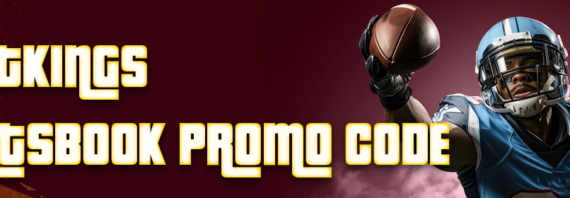A public hearing in Connecticut that lasted nearly 11 straight hours on Tuesday addressed multiple issues that say legal sports betting in the Nutmeg State is anything but smooth sailing at this point.
One of the main issues that have been discussed since day one is the ongoing conflict between the Indian tribes and state officials regarding the rights to sports betting exclusivity.
The state’s two gaming tribes insist that their compacts give them the exclusive right to offer casino gambling, including sports betting. Other gaming interests in the state argue that legal sports betting wasn’t a consideration when the compacts were made and that sports betting does not qualify as a traditional casino game.
Two sports betting bills, S 17 and S 665, were part of the discussion in the Joint Public Safety and Security Committee. Neither bill has any details on how sports betting in the state would be handled, making Tuesday’s hearing mostly an information-gathering session.
Some supporters of the sports betting bills are in favor of tribal exclusivity.
Senator Paul Formica, who is a sponsor of S 17, has expressed his desire to get sports betting started and get revenue going. If the legislature wanted to continue having discussions on adding more stakeholders they could do so afterward.
“Connecticut has a compact, and I believe that exclusivity needs to be honored and recognized,” Formica said. “From my point of view, the more we wait the more we lose, so this is about Connecticut gains and Connecticut revenue.”
Fellow Senator Heather Somers agrees. “I would like to see it started with the tribes, then we can have further conversations on how that works in the future.”
Tribes Weigh In
Rodney Butler, chairman of the Mashantucket Pequot Tribe that operates Foxwoods, explained the perspective and concerns of the tribe in regards to sports betting. Butler stated that across the country sports betting is considered a casino game, which means it falls under the exclusivity portion of the tribes’ agreement with the state. The tribes also contend that the casinos need new opportunities with slot revenue decreasing consistently, due to competition across the state. They expect that sports betting will boost slot revenue as it has done in Rhode Island.
The House chair of the committee, Representative Joe Verrengia, stated that he doesn’t think sports betting should be considered a casino game due to today’s technology:
“I understand the argument to be made that it is a casino game, but 30 years ago there wasn’t iPhones and the technology that exists today. If that technology existed 30 years ago, it wouldn’t be a casino game because you wouldn’t have to go to a casino.”
Verrengia noted that tribes have been willing to work with the state when it comes to allowing others to participate in Connecticut sports betting.
“I appreciate that because, wherever it lands, I believe that there are other stakeholders that should be part of this,” Verrengia said. “To what degree and how that all shapes out, I’m not sure.”
Butler agreed with the possibility of a conversation in the future.
“It’s been a great partnership and, in our culture, we treat those with respect who treat us with respect,” Butler said. “It’s been a respectful relationship up to this point, and hopefully moving forward, so we were absolutely open to that conversation.”
The Lottery Wants In
Greg Smith, president and CEO of the Connecticut Lottery, believes that the lottery is an ideal business partner for Connecticut sports betting.
Smith believes that the lottery could return “four-to-five times as much money per dollar than any other operator.” One key difference is that like all other lottery games, all of the profits would go to the state rather than a small return on profits that the casinos generate.
The lottery has 2,900 licensed retailers who offer lottery games, and the legislature would be able to choose how many of those would be able to offer sports betting and the type of wagers they can offer. Convenience stores could have simple win-loss wagers while sports bars could offer a more complete sportsbook.
“If sports betting is not conveniently available to people geographically throughout the state and online through mobile, bettors will continue through their local bookie or illegal offshore websites they currently use, and the state won’t derive significant economic benefit from the legislation,” Smith said.
OTB’s Want To Participate As Well
Former MLB player and manager Bobby Valentine has two Bobby V’s Restaurant and Sports Bar location in Connecticut. Both of which offer off-track betting on the premises, run by Sportech. Sportech has the exclusive license in the state to conduct off-track pari-mutuel wagering on horse racing, greyhound racing and jai alai.
Valentine pointed out the Sportech has been licensed for 18 years, runs 16 OTB locations and has the ability to add 10 more licenses. Since the legalization of sports betting in nearby states, he has heard that his restaurant patrons will drive to New Jersey to place a bet and then go back home to Connecticut to watch the game.
Surprisingly, Valentine is not on the side of the sports leagues when it comes to integrity fees.
“In baseball, which has one of the best collective bargaining agreements with players getting 52 percent, I think most revenues will be from the increased interest in games. Fans are going to stay until the 9th inning if they have an interest in the game, and they’re going to have an increased interest in a player or game if they have their $10 on the line. I don’t think there will be any problem with the sports industry reaching its hand out because they’ll be making plenty.”
While exclusivity may be the biggest issue at the moment, it isn’t the only one. Other issues that were brought up at the hearing include integrity fees, number of operators and the possibility of mobile sports betting. Once thought to be one of the first states to offer legal sports betting, Connecticut may still be a ways off.




